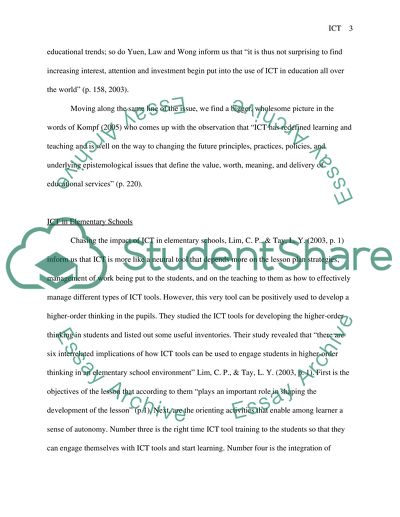Cite this document
(“ICT in Education Essay Example | Topics and Well Written Essays - 1250 words”, n.d.)
Retrieved from https://studentshare.org/miscellaneous/1509250-ict-in-education
Retrieved from https://studentshare.org/miscellaneous/1509250-ict-in-education
(ICT in Education Essay Example | Topics and Well Written Essays - 1250 Words)
https://studentshare.org/miscellaneous/1509250-ict-in-education.
https://studentshare.org/miscellaneous/1509250-ict-in-education.
“ICT in Education Essay Example | Topics and Well Written Essays - 1250 Words”, n.d. https://studentshare.org/miscellaneous/1509250-ict-in-education.


